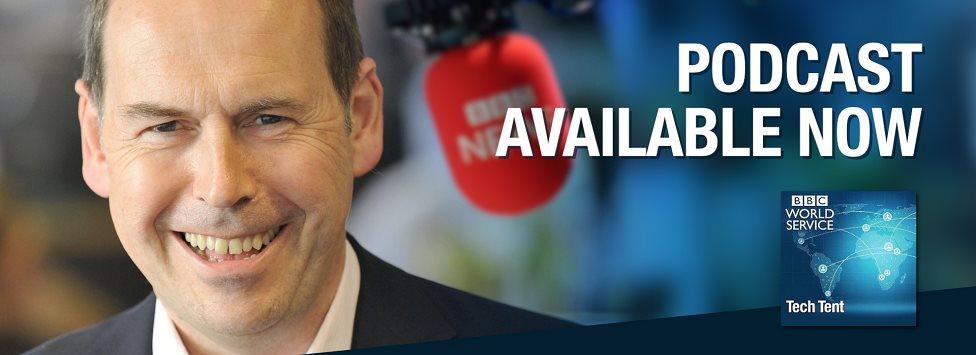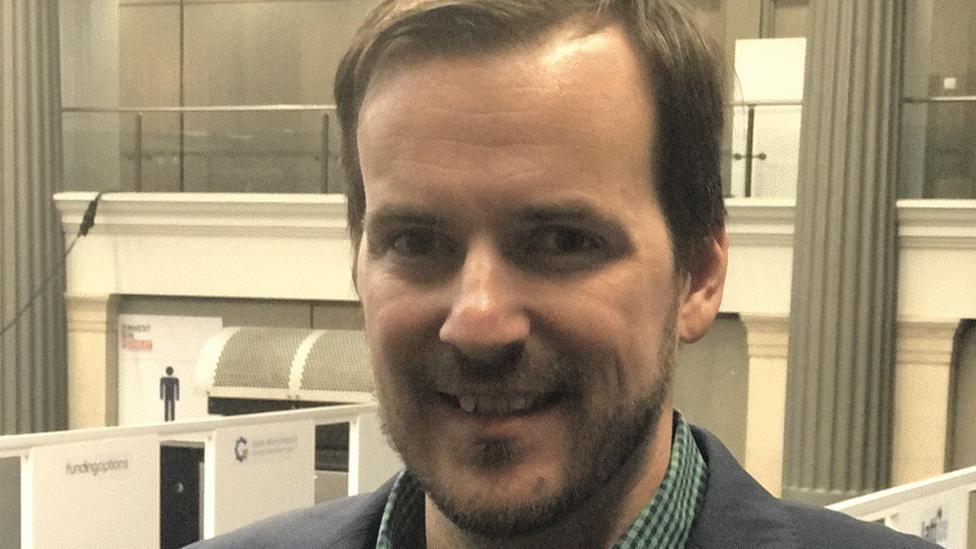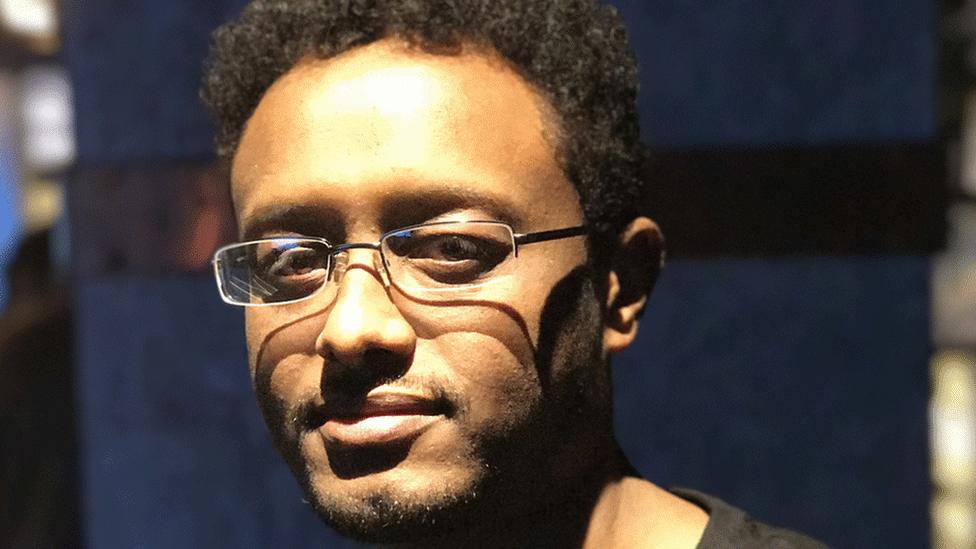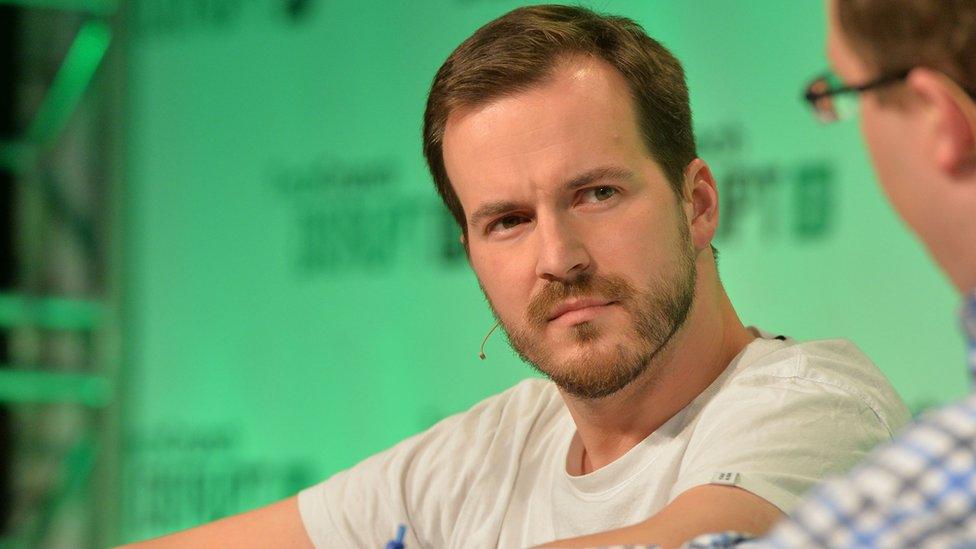Tech tent: Will fintech flee London?
- Published

Listen to previous episodes on the BBC website
Listen live every Friday at 15.00 GMT on the BBC World Service

On this week's Tech Tent we look at London's drive to make sure it remains the world's leading centre of fintech - or financial technology.
We find out why it's so hard to find a wi-fi hotspot in Germany, and we visit a coding school for refugees.
Will fintech flee London?

Taavet Hinrikus, head of fintech firm, TransferWise, worries about the possible loss of talent
From mobile payment apps to digital currencies, from the blockchain to artificially intelligent insurance brokers, financial technology is one of the hottest areas for tech investment.
And London, one of the world's most important financial centres with plenty of talented software engineers, is regarded as just about the best city on earth for anyone starting a fintech business.
But will that continue to be the case after the UK leaves the European Union?
The British government certainly hopes so, and it convened the International Fintech conference in London this week to bang that message home.
The Chancellor of the Exchequer, Philip Hammond, and the Bank of England governor Mark Carney, took to the stage to tell the delegates that the UK had a unique mix of the right talent and the right kind of regulation to allow fintech to thrive.
But we hear a rather different message from the founder of TransferWise, probably the most successful fintech firm to be born in the UK.
Taavet Hinrikus, who came to the UK from Estonia to start a money transfer business that now employs over 600 people, says Brexit has made everything uncertain.
His principal concern is about access to talent because he fears skilled people are already being put off from coming to the UK.
But he's also concerned about the loss of passporting, which allows financial firms to operate across the European Union.
So would he still start a business in the UK today, I ask him?
"Probably not," he replies.
"When it comes to how easy it is to get people to come to London, we don't know how it will be in two years time... it is the right thing to consider whether you should do it in Amsterdam or Berlin or any other city in Europe."
But we get a more cheerful view from Erik Abrahamsson, who launched his social media insurance business Digital Fineprint in London last year.
He says investment did dry up for a while after the Brexit vote but now the weak pound is helping him attract overseas investors and customers because his products look cheaper to them.
Germany's wi-fi desert

Germany's new law about third-party responsibility could make offering wi-fi easier
Around the world people now take it for granted that you can pop into a cafe or a public space and get online via a wi-fi network.
But in Germany you will struggle - there are about half as many wi-fi hotspots per head as in the UK.
As our correspondent Joe Miller explains - from one of the few Berlin cafes that offer free wi-fi - that is because businesses fear the consequences of people using their wireless networks to do something illegal.
German law makes them responsible if someone downloads pirated content.
And as German copyright owners are very hot on defending their rights, that can prove costly.
Now there is a new draft law going through the German parliament which makes it clear that third parties should not be liable for the activities of those using wireless networks illegally.
That could make offering hotspots easier, but copyright holders will still be able to demand that access to their content is blocked on wireless networks where piracy has been detected.
Germany, like every modern economy, wants to be seen as a highly connected nation, but when it comes to public wi-fi it is still in the slow lane.
Coding for refugees

Sentahyu Mekoonn from Ethiopia hopes to get a job as a software engineer
Graduation ceremonies are always inspiring events, but the one which Tech Tent attended this week in London was a real celebration of what the technology community can achieve.
We had come to see the first graduates of Code Your Future, a coding school for refugees, showing off their web development projects to friends and to the volunteers who had taught them.
The six-month course was the brainchild of German Bencci, who had heard about a similar project in Amsterdam.
He mobilised volunteers from the technology industry who taught the refugees face-to-face every Sunday, then monitored their work online during the week.
We meet him and two of the students, Arockia Ansi from India and Sentahyu Mekoonn from Ethiopia.
The hope is that the skills they have learned will gain them jobs as software developers in a country which, like many, is always short of engineering talent.
A new class has now started the course and the hope is that Code Your Future can expand with classes in Manchester and Glasgow.
- Published12 April 2017

- Published19 May 2016
